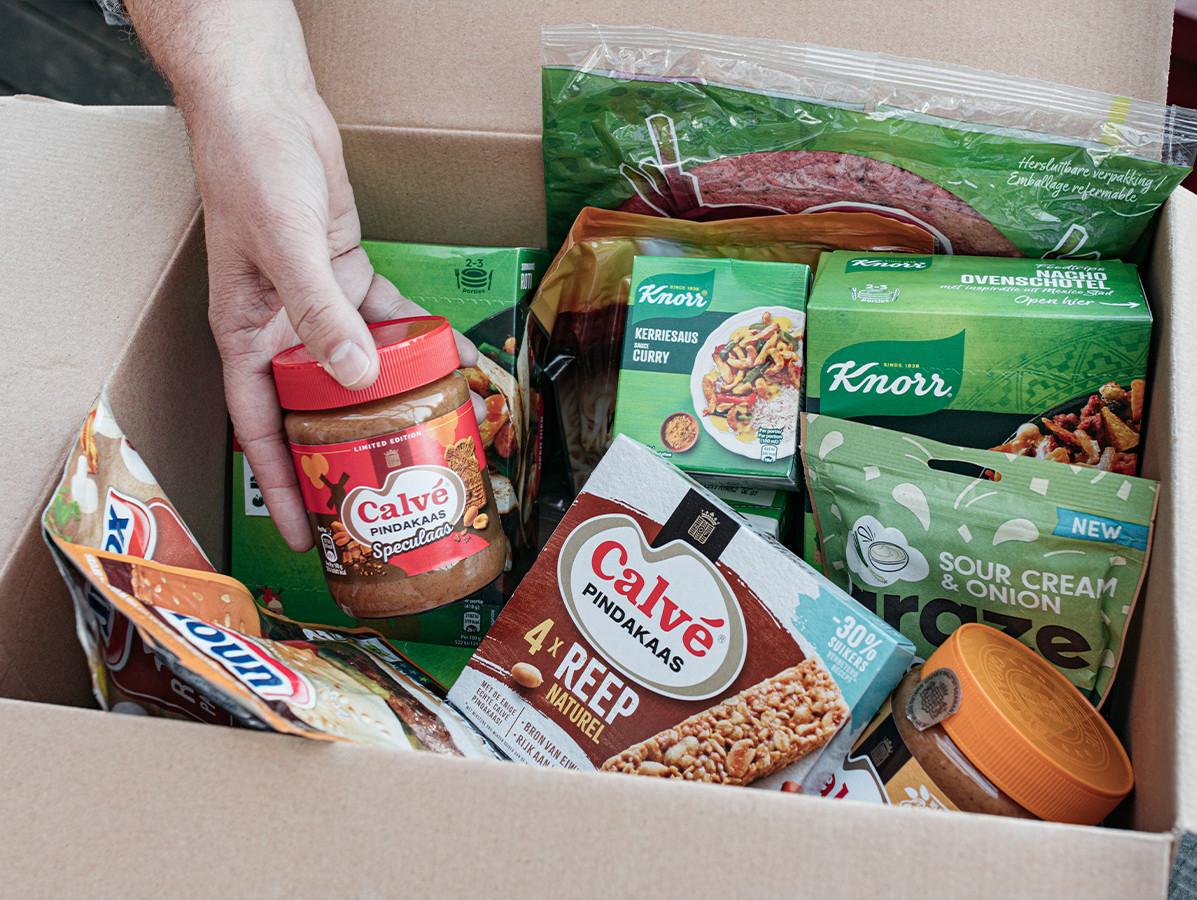
Too Good To Go and Unilever are taking the next step in the fight against food waste. From 29 November 2022, it will be possible to use the Too Good To Go app to have a parcel with products from Unox, Knorr, Calvé and Conimex, among others, delivered at home, directly from the producer to the consumer. The two parties have been working together for some time to offer packages of products - which can no longer be offered through regular channels. With this new home delivery feature, food waste is structurally combated.
Via the Too Good To Go app, you can reserve and collect products that would otherwise be thrown away from a nearby restaurant, bakery or supermarket. A new feature is now added; ordering and having a package delivered to your home with Unilever products that can no longer be offered through regular channels. This enables nationwide coverage. Even people who live far from participating locations or cannot find convenient pick-up times can now order parcels to be delivered to their homes. A test took place in the past two weeks among a select group of consumers. This test was very successful and therefore large-scale rollout is now possible.
The contents of the package currently consist only of Unilever products. In the future, a package should consist of many more different products. Unilever and Too Good To Go are therefore calling on other food companies to join in and reduce food waste together.
For Too Good To Go, this move means adding a new business model to their existing operations. They will become a direct provider of food and no longer just an intermediary. This means they are now able to save more food directly from producers, for example. Besides the Netherlands, saving food directly from producers is already possible in Denmark. By taking this step, the 3.5 million Dutch consumers on the Too Good To Go app can now also save food from being wasted earlier in the food chain.
The package includes products from Unox, Conimex, Knorr and Calvé, among others, whose THT date is a week to several months later than the time of purchase. Production planning tries to plan as efficiently as possible to avoid wasting food. Nevertheless, it sometimes happens that the demand for products changes unexpectedly or unforeseen circumstances arise. A seasonal product such as pea soup, for instance, is difficult to plan, because you simply sell more of it in a cold winter than in a warm winter. In this case, it is known in time that products can no longer be delivered to supermarkets.
Source: Too Good To Go